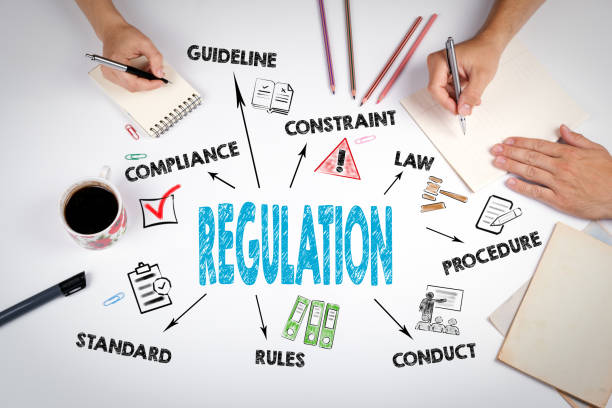In the modern business landscape, digital marketing is essential for reaching and engaging target audiences. Whether you’re a small startup or a large corporation, partnering with a digital marketing agency can significantly enhance your online presence and drive growth. However, one of the most common questions businesses have is, “How much do digital marketing agencies charge?” The answer is not straightforward, as costs can vary widely depending on several factors. This blog post delves into the various pricing models, factors influencing costs, and what businesses can expect when budgeting for digital marketing services.

Pricing Models
Digital marketing agencies typically use several pricing models to charge for their services. Understanding these models can help businesses choose the best option for their needs and budget.
1. Hourly Rates
Many agencies charge by the hour for their services. This model is straightforward and transparent, making it easy for businesses to understand what they’re paying for. Hourly rates can vary widely based on the agency’s location, expertise, and reputation.
Pros:
- Flexibility: Ideal for short-term projects or specific tasks.
- Transparency: Clear understanding of time spent on tasks.
Cons:
- Variable Costs: Expenses can add up quickly if the project scope expands.
- Management: Requires close monitoring of hours billed.
2. Monthly Retainers
Monthly retainers are a popular pricing model for ongoing digital marketing services. Businesses pay a fixed monthly fee for a set range of services, such as SEO, social media management, and content marketing.
Pros:
- Predictable Costs: Easy to budget for monthly expenses.
- Consistent Support: Continuous support and services from the agency.
Cons:
- Long-Term Commitment: May require a longer-term contract.
- Potential Underutilization: Paying the same fee regardless of the amount of work needed.
3. Project-Based Pricing

For specific projects with a clear scope and timeline, agencies often use project-based pricing. This model involves a fixed fee for completing the entire project.
Pros:
- Defined Costs: Clear understanding of the total project cost.
- Milestone Payments: Payments can be tied to project milestones.
Cons:
- Scope Creep: Additional costs if the project scope changes.
- Limited Flexibility: Less flexibility to make changes mid-project.
4. Performance-Based Pricing
Performance-based pricing ties the cost of services to the results achieved. For example, an agency might charge based on the number of leads generated or the amount of revenue increased.
Pros:
- Incentive Alignment: Agencies are motivated to deliver results.
- Cost Efficiency: Paying for actual performance.
Cons:
- Complexity: Difficult to establish clear performance metrics.
- Risk: Potentially higher costs if performance exceeds expectations.
Factors Influencing Costs
Several factors influence how much digital marketing agencies charge for their services. Understanding these factors can help businesses make informed decisions and set realistic budgets.
1. Scope of Services
The range and complexity of services required significantly impact the cost. Comprehensive digital marketing strategies, including SEO, PPC, social media, content marketing, and web development, will cost more than a single service.
2. Agency Expertise and Reputation

Agencies with extensive experience and a strong reputation in the industry often charge higher rates. Their expertise and proven track record can justify the premium cost.
3. Geographic Location
The location of the agency can influence pricing. Agencies in major cities or regions with a high cost of living may charge more than those in smaller towns or countries with lower living expenses.
4. Industry and Competition
Industries with high competition may require more intensive and specialized digital marketing efforts, leading to higher costs. Additionally, niche industries might need unique strategies that can also affect pricing.
5. Client Size and Goals
The size of the business and its marketing goals play a role in determining costs. Larger companies with extensive marketing needs will likely pay more than small businesses with limited budgets and goals.
Typical Costs for Digital Marketing Services
While costs can vary widely, here are some general price ranges for common digital marketing services:
1. SEO Services
- Hourly Rates: $100 – $300 per hour
- Monthly Retainers: $1,000 – $10,000+ per month
- Project-Based: $5,000 – $30,000+ per project
2. PPC Management
- Setup Fees: $500 – $5,000+
- Monthly Management Fees: 10% – 20% of ad spend
- Performance-Based Fees: Varies based on agreed metrics
3. Social Media Marketing
- Hourly Rates: $50 – $200 per hour
- Monthly Retainers: $1,000 – $20,000+ per month
- Project-Based: $5,000 – $25,000+ per project
4. Content Marketing
- Blog Posts: $100 – $1,000+ per post
- E-books/Whitepapers: $1,000 – $5,000+ per piece
- Content Strategy: $5,000 – $20,000+ for comprehensive plans
5. Web Design and Development

- Basic Website: $2,000 – $10,000+
- E-commerce Website: $5,000 – $50,000+
- Custom Web Development: $10,000 – $100,000+
Tips for Choosing the Right Digital Marketing Agency
Selecting the right digital marketing agency involves more than just comparing prices. Here are some tips to ensure you choose the best partner for your business:
1. Define Your Goals
Clearly outline your marketing goals and objectives. Understanding what you want to achieve will help you find an agency that can deliver the results you need.
2. Research and Compare
Take the time to research and compare multiple agencies. Look at their portfolios, case studies, and client testimonials to gauge their expertise and track record.
3. Ask for Proposals
Request detailed proposals from shortlisted agencies. These should outline their approach, services, and pricing, allowing you to make an informed decision.
4. Consider Value Over Cost
While cost is an important factor, consider the value and return on investment (ROI) the agency can provide. A more expensive agency with a proven track record of success may deliver better results than a cheaper alternative.
5. Check Communication and Support
Effective communication is crucial for a successful partnership. Ensure the agency has a clear communication process and offers the support you need throughout the engagement.
Conclusion
Digital marketing agency costs can vary widely based on several factors, including the scope of services, agency expertise, and geographic location. By understanding the different pricing models and what influences costs, businesses can make informed decisions and set realistic budgets for their digital marketing efforts. Ultimately, the right agency should offer a balance of expertise, value, and support to help achieve your marketing goals and drive business growth.